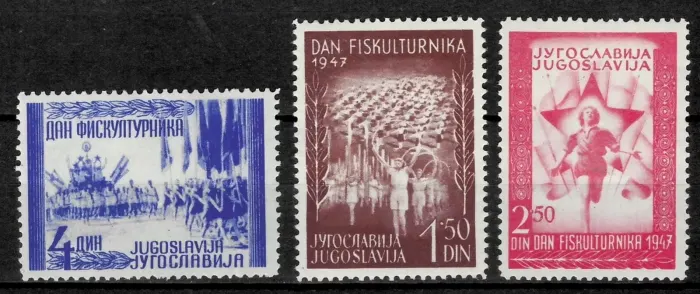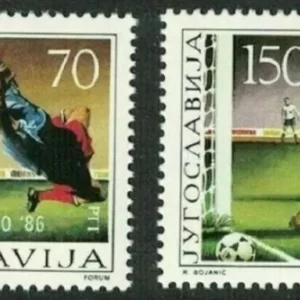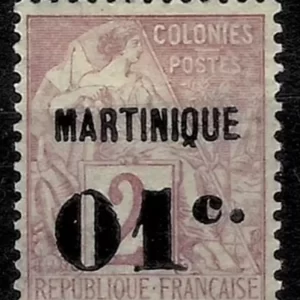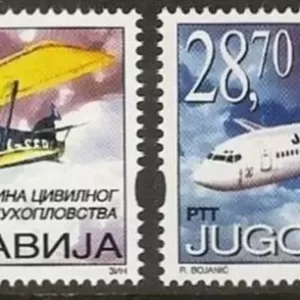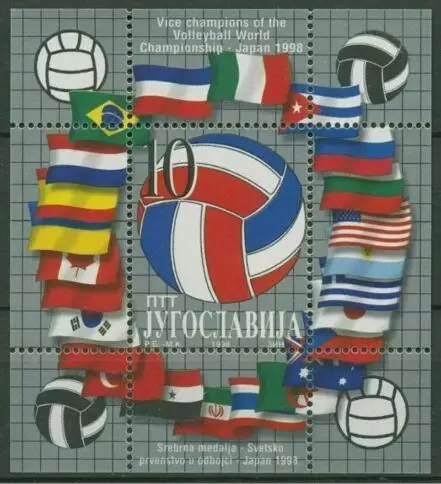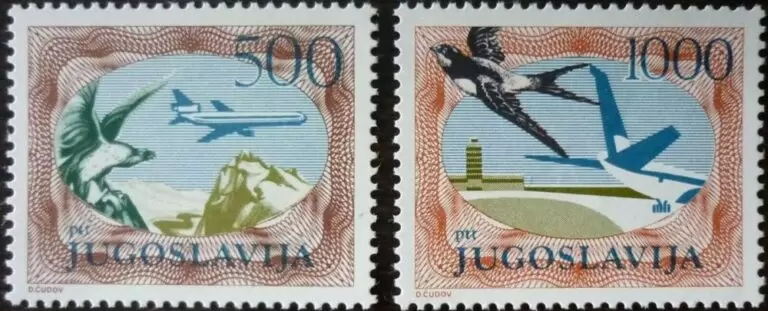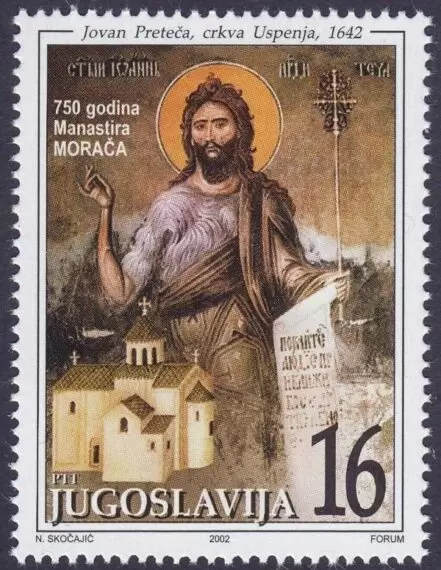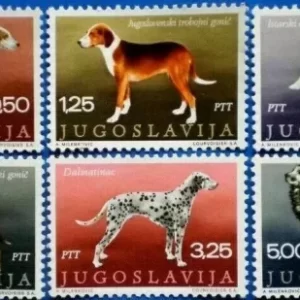Yugoslavia stamps year 1946 1st Anniversary of the End of World War II set MNH**
In 1946, Yugoslavia marked the 1st anniversary of the end of World War II with grand celebrations, reflecting both the victory over the Axis powers and the establishment of a new socialist state under Josip Broz Tito.
Context of the 1946 Celebrations
- May 9, 1945, is officially recognized as Victory Day in Europe (V-E Day), marking the defeat of Nazi Germany.
- Yugoslavia was among the few countries that liberated itself with minimal external military assistance. By May 15, 1945, the Yugoslav Partisans had secured the entire country, eliminating Axis forces and their collaborators.
- On November 29, 1945, the monarchy was abolished, and the Federal People’s Republic of Yugoslavia (FNRJ) was proclaimed.
Key Aspects of the 1st Anniversary Celebrations in 1946
1. Massive Public Celebrations
- May 9, 1946, was celebrated with large parades, speeches, and rallies across major cities like Belgrade, Zagreb, Sarajevo, and Ljubljana.
- The government used this event to highlight the role of the Partisans in defeating fascism.
- Cities displayed red banners, Yugoslav flags, and images of Tito, reinforcing the new socialist identity.
2. Military Parades and National Pride
- The Yugoslav People’s Army (JNA) held large military parades showcasing tanks, artillery, and disciplined troops.
- In Belgrade, a major parade took place in front of the leadership, including Tito and other high-ranking officials.
- The message was clear: Yugoslavia was now a strong, independent socialist state.
Significance of the 1946 Anniversary
- It solidified the legitimacy of Tito’s government in the eyes of the people.
- It marked the transition from war to reconstruction, focusing on economic recovery and socialist transformation.
- The celebration reinforced Yugoslavia’s identity as a victorious and self-liberated nation, setting the stage for its later independent path in global politics.



